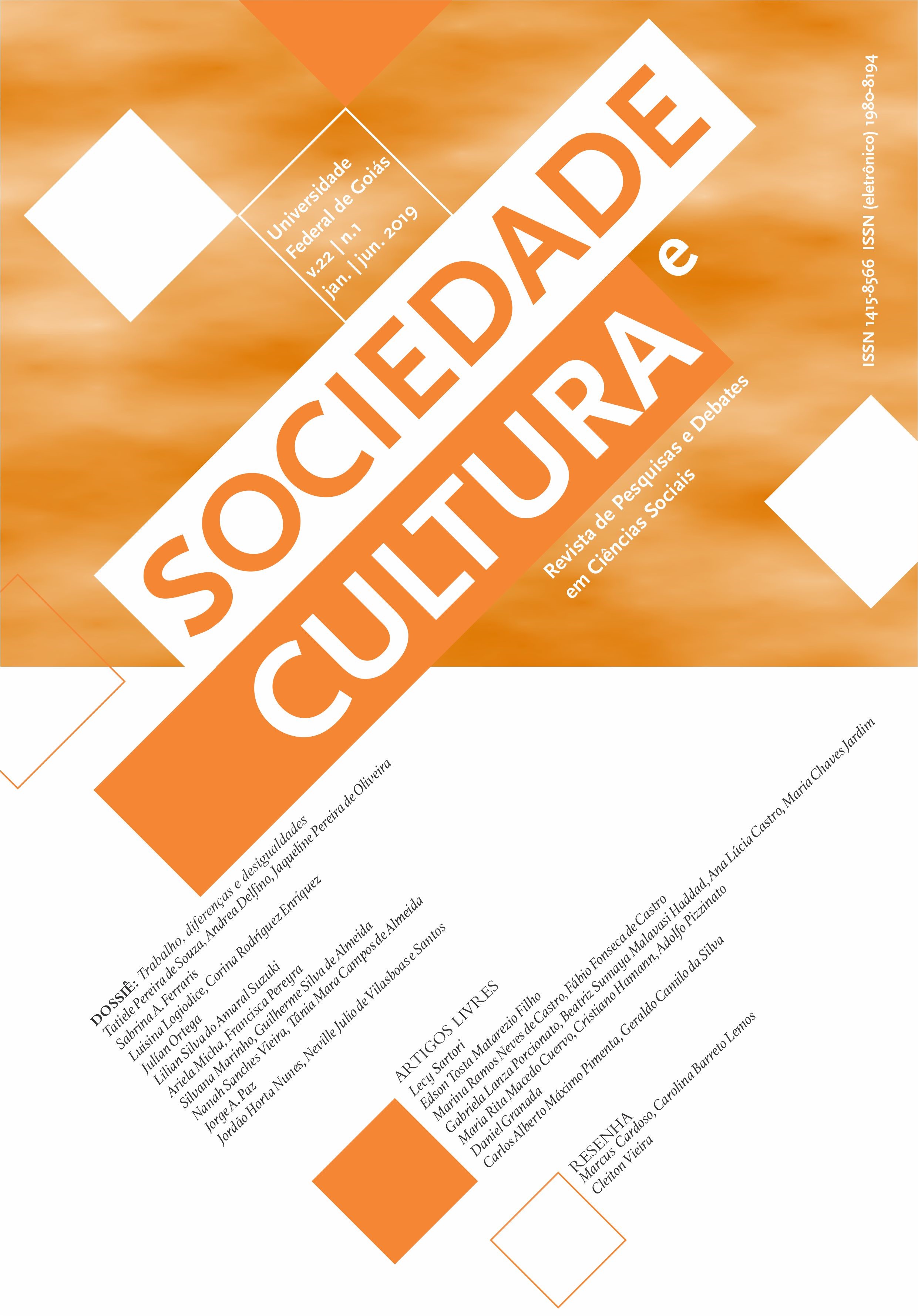From the rescue of souls to the execution of the sorcerer: notes on the Ticuna shamanism
DOI:
https://doi.org/10.5216/sec.v22i1.49691Abstract
It is intended to outline in this article some aspects of the Ticuna shamanism of Brazil, based
on field research in a small community of the Camatiã river, São Paulo de Olivença (AM).
The elements of this shamanism described and analyzed will be: The native word meaning
for shaman (yu’ükü), forms of becoming a shaman, Waia as the mythical site of the sorcerer’s
formation, relations of shamanism with local religions, the withdrawal of witchcraft from a sick
woman’s body, and the vectors of spells. Special attention is given to a shamanic journey to
retrieve a soul from a man outlawed in the forest, and also to an execution of a sorcerer.
Downloads
Download data is not yet available.
Downloads
Published
2019-05-23
How to Cite
MATAREZIO FILHO, Edson Tosta. From the rescue of souls to the execution of the sorcerer: notes on the Ticuna shamanism. Sociedade e Cultura, Goiânia, v. 22, n. 1, 2019. DOI: 10.5216/sec.v22i1.49691. Disponível em: https://revistas.ufg.br/fcs/article/view/49691. Acesso em: 15 feb. 2026.
Issue
Section
Free Articles
License
Authors who publish in this journal agree to the following terms:
- Authors retain the copyright and grant the journal the right of first publication, the work being simultaneously licensed under the Creative Commons Attribution License, which allows the sharing of the work with acknowledgment of authorship and of the initial publication in this journal;
- Authors are authorized to enter into additional contracts separately, for non-exclusive distribution of the version of the work published in this journal (eg, publishing in an institutional repository or as a book chapter), with acknowledgment of authorship and of the initial publication in this journal;
- Authors are allowed and encouraged to post and distribute their work online (eg, in institutional repositories or on their personal page) at any point before or during the editorial process, as this can bring productive change as well as increases the impact and the citation of the published work (see O Efeito do Acesso Livre).



